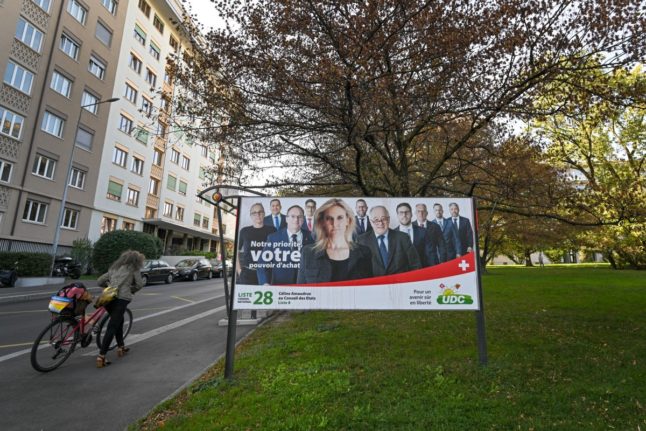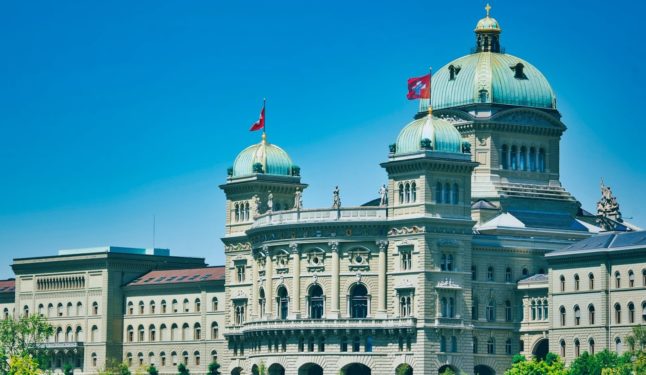The lawmaker was unanimously elected at a party conference in Langenthal, northern Switzerland. He was the only candidate to stand for the leadership of the SVP, which comfortably topped the Swiss general election in October.
Dettling, 43, had been the election campaign manager and a party vice president.
Dettling is a member of the National Council lower house of parliament, representing the central Schwyz canton, and has served as party vice president.
“We will continue to defend our freedom and independence in the future and will not allow ourselves to be bullied by foreign rulers,” he said.
On the question of closer ties with the neighbouring European Union, he added: “In Switzerland, it is the people who govern, and not bureaucrats in Brussels.”
The SVP has come a long way from its roots as a farmers’ party in the German-speaking part of Switzerland.
It became a national force focused on opposition to mass immigration, to closer ties with the EU, and to the abandonment of Swiss neutrality.
Dettling is considered on the harder wing of the party on immigration. His parliamentary interventions typically concern asylum and agriculture.
Outgoing leader Marco Chiesa had decided not to stand again at the end of his term.
Chiesa has led the SVP since August 2020 and in October 2023 took the party to the third-best result in its history, winning 28 percent of the vote and nine more seats in the National Council.
The SVP’s election campaign had focused on the fight against “mass immigration” and the prospect of the Swiss population –currently 8.8. million — reaching 10 million.
It also launched a war on “cancel culture” and what it called “gender terror and woke madness”.
Delegates gave Chiesa a standing ovation on Saturday.
The seven seats in the Swiss government are shared out 2-2-2-1 among the four largest parties. The government, or Federal Council, takes its decisions by consensus and collective responsibility.
The SVP’s two government members are Economy Minister Guy Parmelin and Environment Minister Albert Rosti.



 Please whitelist us to continue reading.
Please whitelist us to continue reading.
Member comments